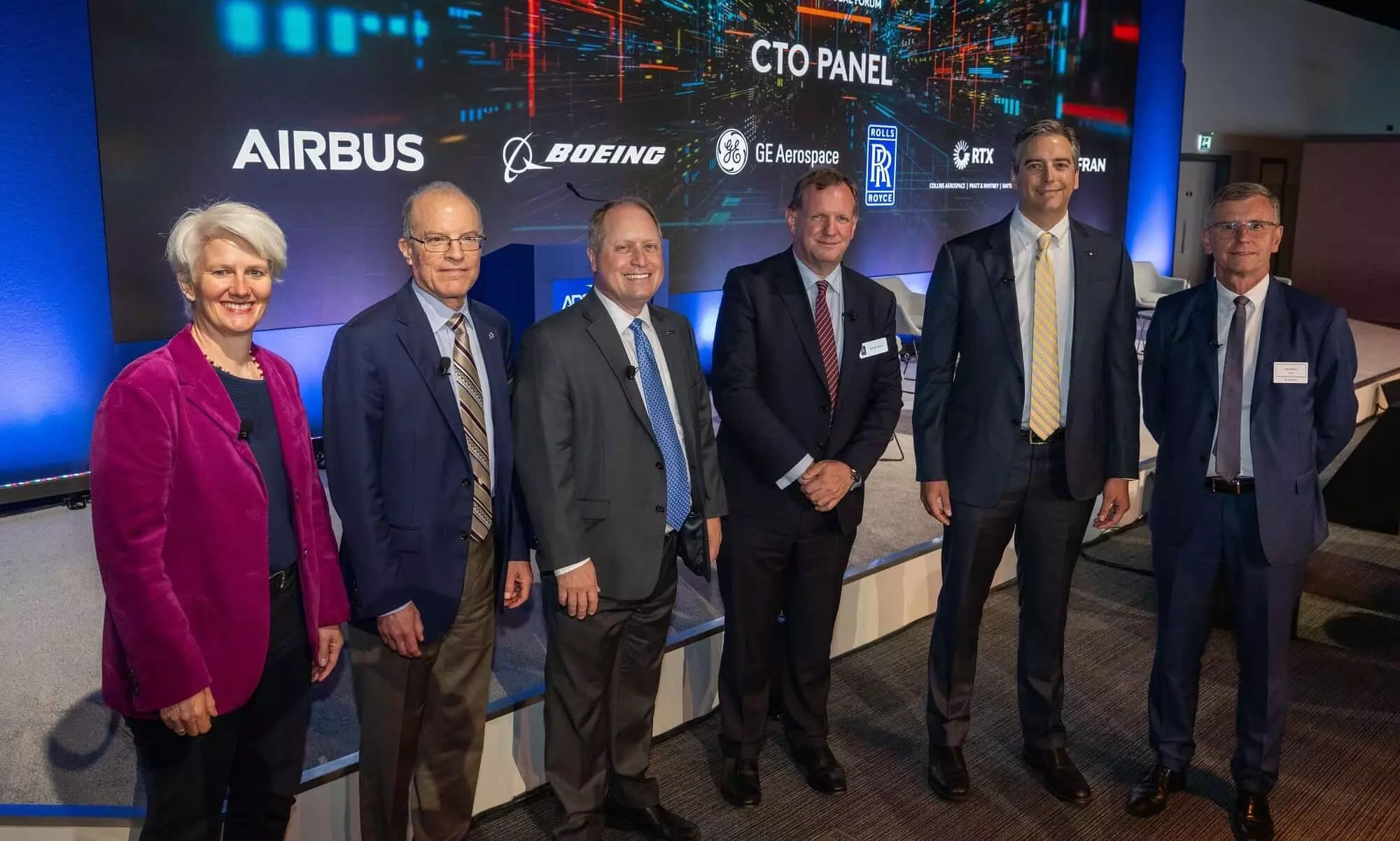
Aerospace technology leaders call for research on non-CO2 emissions
Chief Technology Officers to continue engaging academic, govt & industry stakeholders to advance key research priorities

(From left) Sabine Klauke, Chief Technology Officer, Airbus; Todd Citron, Chief Technology Officer, Boeing; Chris Lorence, Chief Engineer, GE Aerospace; Simon Burr, Group Director, Engineering, Technology and Safety, Rolls-Royce; Juan M. de Bedout, Chief Technology Officer, RTX; and Eric Dalbiès, Executive Vice President, Strategy and Chief Technology Officer, Safran. (Photo Credit: Airbus)
The Chief Technology Officers of Boeing, Airbus, Dassault, GE Aerospace, Rolls-Royce, RTX and Safran have called for government research programmes that enhance scientific understanding of aviation non-CO2 effects such as contrails, nitrogen oxides (NOx), sulphur, aerosols and soot.
The technology leaders released a joint statement at the 2024 Farnborough International Airshow emphasising the importance of accelerating efforts critical to understanding and reducing aviation’s non-CO2 effects, says a release from Boeing.
"The aerospace industry actively works to improve the understanding of non-CO2 emissions in collaboration with research institutions, universities and other stakeholders. The forum called for increased research funding for science needed to underpin technology choices, operational changes and policy decisions."
A key part of non-CO2 emissions from aviation, persistent contrails are estimated to have a warming climate impact, says the statement signed by all technology chiefs. "Several scientific studies have sought to quantify their climate impact but estimates are highly uncertain based on limited understanding of the physical and chemical properties and mechanisms as well as atmospheric conditions that influence contrail formation and evolution.
"Similarly, NOx emissions and their secondary reactions depend on engine design, operating conditions, and atmospheric conditions. Research and collection of data is essential to accurately quantifying the interactions and impacts of non-CO2 emissions.
"As the industry aims to mitigate the impact of non-CO2 emissions, we are unified in focusing our efforts on research, flight testing and data transparency to advance these seven priorities alongside our academic and government stakeholders. Through industry, academic and institutional stakeholders effectively working together, we can achieve meaningful progress toward a more sustainable aviation industry."

